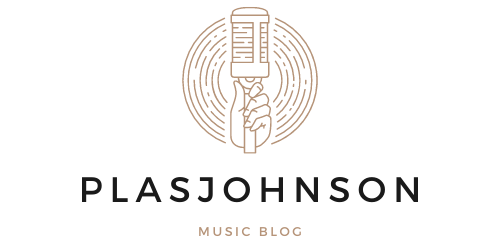In an industry where major label backing has long been seen as the golden ticket to stardom, Russ Vitale has proven that the independent route can not only match but surpass the traditional path. The New Jersey-born rapper, singer and producer has built a remarkable career on his own terms, turning bedroom recordings into a global phenomenon whilst retaining control over his creative output and financial destiny. His journey from uploading tracks on SoundCloud to commanding stages across continents offers a masterclass in artistic autonomy and business acumen, challenging the conventional wisdom that success requires surrendering ownership to corporate machinery.
From Atlanta Bedrooms to Global Stages: The Self-Made Journey of Russ Vitale
Early Years and the DIY Blueprint That Changed Hip-Hop
Born on the twenty-sixth of September in 1992 in New Jersey, Russ Vitale developed an early fascination with music that would ultimately reshape his entire existence. Unlike many of his contemporaries who sought out producers and engineers to craft their sound, Russ immersed himself in every aspect of music creation from the outset. He taught himself to write, produce and engineer his own material, establishing a self-sufficiency that would become his trademark. Between 2011 and 2014, he released eleven mixtapes, each one a stepping stone in his evolution as an artist. This prolific output demonstrated not only his dedication but also his willingness to experiment and refine his craft without the interference or approval of industry gatekeepers. The bedroom studio became his laboratory, and the internet his distribution channel, allowing him to bypass the traditional structures that had long controlled access to audiences.
Breaking through without a major label: the soundcloud revolution
The decision to release a song every single week on SoundCloud for two and a half years was audacious, exhausting and ultimately transformative. This relentless schedule forced Russ to maintain creative momentum whilst simultaneously building a loyal fanbase that grew organically through word of mouth and social sharing. The platform, which had become a haven for emerging talent, provided the perfect ecosystem for his approach. Listeners discovered his music without the filter of radio programmers or label executives, creating a direct connection between artist and audience that would prove invaluable. By the time he caught the attention of Columbia Records in 2016, Russ had already established himself as a formidable independent force. His decision to sign with the major label was strategic rather than desperate; he wanted access to radio play at a time when streaming services and playlist curation were still emerging as dominant forces. Remarkably, his deal was structured as a rare profit split arrangement where he retained ownership of his masters and his entire back catalogue, a negotiation that reflected his understanding of long-term value and his refusal to surrender control.
Charting the Discography: Key Albums That Defined Russ's Financial and Artistic Independence
There's Really a Wolf and the Platinum Breakthrough Moment
The release of There's Really a Wolf marked a watershed moment in Russ's career, propelling him to number seven on the US album chart and generating two singles that cracked the US Top 100. The album's success was built on tracks that resonated deeply with listeners, particularly What They Want, which has since accumulated over 530 million streams on Spotify, and Losing Control, which has surpassed 670 million streams. These numbers represent more than mere popularity; they translate into substantial revenue, especially for an artist who owns his work outright. Before his Columbia partnership, Russ was already earning hundreds of thousands of dollars monthly through TuneCore, the digital distribution service that allows independent artists to place their music on streaming platforms whilst retaining ownership. The trajectory of his earnings tells a remarkable story: in August 2013, he made just forty-eight pounds and sixty-six pence, but by October 2017, his monthly income had soared past two hundred and eighty thousand pounds. This exponential growth demonstrated that the independent model, when executed with consistency and quality, could generate wealth that rivalled or exceeded traditional label advances.
Zoo and Santiago: Evolving Sounds Across Continents and Festival Circuits
Following his departure from Columbia Records, a decision driven by his realisation that the label was not providing services he could not manage himself, Russ embraced his independence with renewed vigour. The Chomp EP arrived in 2020, followed by the Chomp 2 album in 2021, both released through his own imprint, DIEMON Records. In May 2023, he extended this series with the Chomp 2.5 EP, continuing to explore the sonic territories he had carved out for himself. His latest full-length project, Santiago, released in August 2023, drew inspiration from The Alchemist, the legendary producer known for his atmospheric and sophisticated production style. The album showcased Russ's willingness to evolve whilst maintaining the core elements that had endeared him to fans. His touring schedule has taken him across the globe, including performances in France where he has graced festival stages, connecting with European audiences who have embraced his blend of introspection and confidence. These international appearances have not only expanded his fanbase but also diversified his revenue streams, with live performance becoming an increasingly significant component of his financial empire.
The Business Mind Behind the Bars: How Russ Built a Multi-Million Pound Empire
Ownership over everything: publishing, masters and touring revenue
 At the heart of Russ's financial success lies a principle that he has consistently championed: ownership. Whilst many artists sign away their publishing rights and master recordings in exchange for upfront advances and marketing support, Russ has retained control over every aspect of his catalogue. This ownership means that every stream, download and licensing deal generates revenue that flows directly to him, rather than being divided amongst multiple stakeholders. The long-term value of this approach cannot be overstated; whilst a traditional label deal might provide immediate capital, the ownership model ensures that an artist continues to benefit from their work indefinitely. Russ has spoken openly about the transformative impact of this strategy, noting that his decision to remain independent before his Columbia deal allowed him to build a substantial income stream that gave him leverage in negotiations. Even when he did partner with a major label, the terms ensured that he maintained ownership of his masters, a rarity in an industry where labels typically demand these rights in exchange for their investment. His touring revenue has further bolstered his financial position, with live performances commanding increasingly substantial fees as his profile has grown.
At the heart of Russ's financial success lies a principle that he has consistently championed: ownership. Whilst many artists sign away their publishing rights and master recordings in exchange for upfront advances and marketing support, Russ has retained control over every aspect of his catalogue. This ownership means that every stream, download and licensing deal generates revenue that flows directly to him, rather than being divided amongst multiple stakeholders. The long-term value of this approach cannot be overstated; whilst a traditional label deal might provide immediate capital, the ownership model ensures that an artist continues to benefit from their work indefinitely. Russ has spoken openly about the transformative impact of this strategy, noting that his decision to remain independent before his Columbia deal allowed him to build a substantial income stream that gave him leverage in negotiations. Even when he did partner with a major label, the terms ensured that he maintained ownership of his masters, a rarity in an industry where labels typically demand these rights in exchange for their investment. His touring revenue has further bolstered his financial position, with live performances commanding increasingly substantial fees as his profile has grown.
Strategic Collaborations and International Expansion from France to Asia
Beyond the mechanics of ownership and distribution, Russ has demonstrated a keen understanding of strategic positioning within the global music market. His collaborations have been carefully selected to expand his reach without diluting his brand, partnering with artists who complement his style whilst introducing him to new audiences. His presence at major festivals, particularly in France where the hip-hop scene has flourished in recent years, has solidified his status as a truly international artist. The French market, with its appetite for diverse hip-hop sounds and its robust festival circuit, has provided a lucrative platform for live performances that generate significant income whilst building cultural capital. Russ's approach to these opportunities reflects his broader business philosophy: every decision is evaluated based on its potential to enhance his artistic credibility and financial standing, rather than simply chasing exposure. This disciplined approach has allowed him to avoid the pitfalls that ensnare many artists who prioritise short-term gains over sustainable growth. His expansion into Asian markets has followed a similar pattern, with carefully orchestrated performances that introduce his music to regions where hip-hop continues to gain traction.
Behind the Curtain: Personal Philosophy, Relationships and Life Beyond the Microphone
Mental Health Advocacy and the Man Behind the Confidence
Despite his outward confidence and success, Russ has been remarkably candid about the mental and emotional challenges that accompany a career in music. He has spoken about the importance of maintaining peace and progress, a personal definition of success that transcends chart positions and streaming numbers. This philosophy reflects a maturity that many artists struggle to achieve, recognising that external validation can be fleeting whilst internal contentment provides a more stable foundation. Russ has advised younger artists to avoid the trap of seeking industry approval, noting that this desperation can lead to compromising decisions that undermine long-term goals. He has also acknowledged that mentorship would have accelerated his journey, suggesting that whilst his independent path was ultimately successful, guidance from experienced figures could have smoothed some of the rougher patches. His willingness to discuss these vulnerabilities has endeared him to fans who appreciate the honesty behind the bravado. Mental health, a topic increasingly discussed within the hip-hop community, features prominently in his public statements, and he has used his platform to encourage others to prioritise their well-being alongside their ambitions.
Private passions: from sicilian roots to sunset festival performances
Away from the recording booth and the stage, Russ maintains connections to his heritage and personal interests that ground him amidst the whirlwind of his professional life. His Sicilian roots, inherited from his family background, have influenced both his worldview and his approach to community and loyalty. These cultural touchstones provide a sense of identity that extends beyond his music, reminding him of the values instilled during his upbringing. His limited edition merchandise collections, including the Shakti and Kshama lines which began shipping from the thirty-first of October, reflect his interest in blending streetwear aesthetics with deeper philosophical concepts. These offerings, categorised under collections labelled Mainstream and Underground, allow fans to engage with his brand beyond streaming platforms. His performances at sunset festivals, where the fading light creates an atmospheric backdrop for his introspective tracks, have become particularly memorable moments for audiences. These settings allow his music to resonate in environments that enhance its emotional impact, creating experiences that transcend the typical concert format. For Russ, success is not measured solely by financial metrics or industry accolades but by the ability to maintain artistic integrity whilst building a sustainable career that allows him to live on his own terms, a balance he continues to navigate with remarkable consistency.

